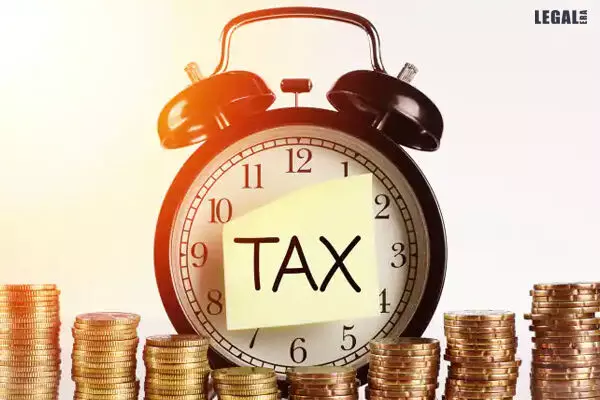- Home
- News
- Articles+
- Aerospace
- AI
- Agriculture
- Alternate Dispute Resolution
- Arbitration & Mediation
- Banking and Finance
- Bankruptcy
- Book Review
- Bribery & Corruption
- Commercial Litigation
- Competition Law
- Conference Reports
- Consumer Products
- Contract
- Corporate Governance
- Corporate Law
- Covid-19
- Cryptocurrency
- Cybersecurity
- Data Protection
- Defence
- Digital Economy
- E-commerce
- Employment Law
- Energy and Natural Resources
- Entertainment and Sports Law
- Environmental Law
- ESG
- FDI
- Food and Beverage
- Gaming
- Health Care
- IBC Diaries
- In Focus
- Inclusion & Diversity
- Insurance Law
- Intellectual Property
- International Law
- IP & Tech Era
- Know the Law
- Labour Laws
- Law & Policy and Regulation
- Litigation
- Litigation Funding
- Manufacturing
- Mergers & Acquisitions
- NFTs
- Privacy
- Private Equity
- Project Finance
- Real Estate
- Risk and Compliance
- Student Corner
- Take On Board
- Tax
- Technology Media and Telecom
- Tributes
- Viewpoint
- Zoom In
- Law Firms
- In-House
- Rankings
- E-Magazine
- Legal Era TV
- Events
- News
- Articles
- Aerospace
- AI
- Agriculture
- Alternate Dispute Resolution
- Arbitration & Mediation
- Banking and Finance
- Bankruptcy
- Book Review
- Bribery & Corruption
- Commercial Litigation
- Competition Law
- Conference Reports
- Consumer Products
- Contract
- Corporate Governance
- Corporate Law
- Covid-19
- Cryptocurrency
- Cybersecurity
- Data Protection
- Defence
- Digital Economy
- E-commerce
- Employment Law
- Energy and Natural Resources
- Entertainment and Sports Law
- Environmental Law
- ESG
- FDI
- Food and Beverage
- Gaming
- Health Care
- IBC Diaries
- In Focus
- Inclusion & Diversity
- Insurance Law
- Intellectual Property
- International Law
- IP & Tech Era
- Know the Law
- Labour Laws
- Law & Policy and Regulation
- Litigation
- Litigation Funding
- Manufacturing
- Mergers & Acquisitions
- NFTs
- Privacy
- Private Equity
- Project Finance
- Real Estate
- Risk and Compliance
- Student Corner
- Take On Board
- Tax
- Technology Media and Telecom
- Tributes
- Viewpoint
- Zoom In
- Law Firms
- In-House
- Rankings
- E-Magazine
- Legal Era TV
- Events
Delhi High Court Ruling Safeguards Taxpayers' Refund Post Appellate Victory

Delhi High Court Ruling Safeguards Taxpayers' Refund Post Appellate Victory
Advance Systems, the petitioner, received a favourable ruling from the Delhi High Court, which emphasised that taxpayers should not undergo the burden of repetitive refund applications. The Court's decision asserts that if a refund claim was initially rejected but subsequently the taxpayer succeeded before the appellate authority, the tax authorities cannot dismiss the claim on mere technical grounds.
In the case's factual background, the petitioner sought a refund of Input Tax Credit for exports made under a Letter of Undertaking (LUT) between January 2021 and September 2021. The refund claim was made through two applications for Zero Rated Supplies under Section 54(3)(i) of the Central Goods and Services Tax Act, 2017.
Upon receipt of the claims, the Commissioner of Central Excise and CGST acknowledged their submission, but there was no further processing or online acknowledgment. Subsequently, after a significant delay, the Commissioner issued a show cause notice intending to reject the refund claim on various grounds.
The petitioner requested adequate time to respond to the notice, but the Commissioner denied the claim without granting the requested time. Frustrated by this decision, the petitioner decided to appeal before the appellate authority, which led to partial success in obtaining the refund.
Despite the petitioner's success in the appeal, the Commissioner failed to process the approved refund claim. In response, the petitioner made another attempt to claim the refund based on the Orders-in-Appeal.
However, the Commissioner argued that the application was deficient because it lacked an undertaking from the petitioner to refund the sanctioned amount along with interest if the requirements of Section 16(2)(c) of the CGST Act and Section 42(2) of the CGST Act were not complied with regarding the refunded amount.
According to the Division Bench of Justices Vibhu Bakhru and Amit Mahajan, the petitioner should not be subjected to the burden of making repetitive refund applications, especially when they have already succeeded in their appeals before the appellate authority. The Bench asserted that the appellate proceedings were a continuation of the petitioner's initial refund applications. Therefore, the Orders-in-Appeal should be given full effect, and the refund claim should be processed and granted accordingly.
The Bench expressed its disapproval of the Commissioner of Central Excise and CGST's argument, which relied on a circular dated October 3, 2019, stating that a person who has obtained success in their refund claim through an appeal or any other forum must file a fresh application in form GST RFD-01. The Bench found this stance to be unacceptable, stressing that it is not permissible for the Commissioner of Central Excise and CGST to raise any deficiency memo after a taxpayer has already succeeded in the appellate proceedings.
In addition to their previous remarks, the Bench clarified that although a taxpayer has the option to file a fresh online application to initiate the refund processing, the authorities cannot raise any further deficiency memos related to the same claim that has already been decided upon during the appellate proceedings.
In its final ruling, the Bench directed the Commissioner of Central Excise and CGST to promptly approve the petitioner's refund claim, as it was accepted and allowed by the appellate authority. Furthermore, the Bench ordered that any applicable interest should also be included in the refund amount, as per the provisions of the CGST Act.


